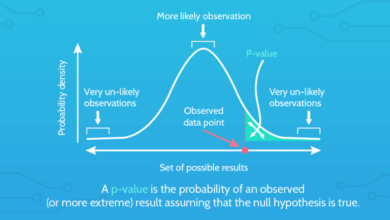Nikkei 225 index: Explained
The Nikkei 225 is a key index for anyone interested in the Japanese market or global trading. It offers a snapshot of the health of the Japanese economy and provides ample trading opportunities for those who understand its dynamics. The Nikkei 225 holds great significance in the global economy, both as an indicator of the Japanese economy and as a reflection of the interconnectedness of global financial markets. Stock market indices play a crucial role in the financial market by providing investors with valuable information about the overall performance of a specific market or sector. They act as barometers, tracking market trends and displaying them in an easily digestible format. The Nikkei 225 Stock Market Index is a widely recognized and influential benchmark that reflects the performance of the Japanese stock market.
Global Tech Sell-Off Damps Asian Stock Markets
As global interest in Japanese equities grows, choosing a reliable and fully featured trading platform is essential. Ultima Markets, a multi-regulated international broker, offers diversified trading tools and premium services—especially in Nikkei 225 trading—providing several unique advantages. The Nikkei 225 is price-weighted, giving more influence to stocks with higher prices, unlike market-cap-weighted indices such as TOPIX or the S&P 500. Exchange-Traded Funds (ETFs) that track the index offer convenient access for individual investors, allowing investment in a portfolio mirroring the Nikkei’s performance without buying individual stocks. 2025 outlooks remain optimistic but cautious, with expectations of continued gains fueled by economic recovery and ongoing corporate reforms.
The performance of the Nikkei 225 can impact investment decisions, portfolio allocation, and risk management strategies of institutional investors and market participants worldwide. The Nikkei 225 has a global impact as it influences the sentiment of investors around the world. Changes in the index can trigger reactions in other financial markets, especially in Asia, due to its status as a leading indicator of economic activity in Japan. As Japan is deeply integrated into the global economy, international events can have a significant impact on the Nikkei 225.
Forex broker with ZAR accounts for South African traders
Now that you understand the significance of the Nikkei 225 and its impact on the global financial markets, take the next step in your trading journey with TIOmarkets. As a top-rated forex broker, we offer a robust online trading platform where you can trade a variety of instruments, including indices like the Nikkei 225. With over 170,000 accounts opened in more than 170 countries, TIOmarkets provides low fees and access to over 300 instruments across 5 markets. Enhance your trading skills with our comprehensive educational resources and step-by-step guides.
Exploring a World of Opportunities
This is different from a market capitalization-weighted index like the S&P 500, where companies are weighted based on the total market value of their outstanding shares. In the Nikkei 225, a company with a higher stock price will have a greater influence on the index’s performance. Ultima Markets provides an intuitive and easy-to-use platform supporting both MT4 and MT5, suitable for investors of all levels. Ultima Markets offers competitive trading costs, with ECN account commissions as low as USD 5 per lot—below the market average. The platform uses advanced trading technology to ensure fast order execution and a low-latency environment, making it particularly suitable for intraday and high-frequency traders. First created in 1950 and maintained by Nikkei Inc., this index is refreshed twice a year to ensure it accurately represents market realities.
The calculation involves adjusting stock prices for corporate actions like splits, then summing these adjusted prices and dividing by a specific divisor. The information on this website does not constitute investment advice or a recommendation or a solicitation to engage in any investment activity. By accessing this website, users acknowledge that their interaction with its content is a personal and voluntary act undertaken at their investment strategy guide own discretion.
- However, investors should remain alert to potential risks such as changes in BOJ monetary policy, global economic shifts, and geopolitical tensions.
- Nikkei 225 (JP225) is considered the benchmark index for the Japanese economy, similar to how the Dow Jones represents the U.S. economy.
- This means that changes in the prices of higher-priced stocks will have a larger effect on the overall index level.
- Following fundamental economic indicators and corporate developments helps align investment decisions with market trends.
- The Nikkei 225 Index is calculated using the price-weighted index method, which differs from other indices that use market capitalization as a weighting factor.
Trading WTI CFDs
However, investors should remain aware of risks tied to shifts in Bank of Japan policy, international trade dynamics, and geopolitical tensions in the Asia-Pacific region. Tracking the Nikkei 225 offers insight not only into individual corporate performance but also broader economic trends influencing Japan. Understanding what the Nikkei 225 encompasses and how it functions is crucial for investors eyeing Japan’s dynamic market. By trading the Nikkei 225, you gain direct exposure to Japan’s industrial, technology, and consumer sectors, without having to buy individual stocks.
Role in the Global Economy
We do not provide investment advice or solicitation of any kind to buy or sell any investment products. In a price-weighted index, stocks with higher prices have a greater influence on the index’s movements. For example, a stock with a price of 10,000 yen will have a much larger impact on the index than a stock priced at 500 yen, even if the latter company has a larger market capitalization. Unlike market capitalization-weighted indices, the Nikkei scores influence based on stock prices—companies with higher share prices affect the index movement more significantly. Furthermore, the index’s influence extends beyond regional markets, affecting global investors and multinational corporations with exposure to Japan.
The Nikkei 225 is one such index, focusing on Japanese companies listed on the Tokyo Stock Exchange. Among major Asian stock markets, the Nikkei 225 Index has long served as a barometer of Japan’s economic health and corporate competitiveness. As Japanese equities reached record highs in 2024, this year’s market outlook has drawn heightened attention from global investors. This article offers an in-depth analysis of the composition, historical trends, investment approaches, and 2025 market forecasts of the Nikkei 225, helping you stay attuned to the pulse of Japan’s stock market.
- As a top-rated forex broker, we offer a robust online trading platform where you can trade a variety of instruments, including indices like the Nikkei 225.
- Tracking the Nikkei 225 offers insight not only into individual corporate performance but also broader economic trends influencing Japan.
- The Nikkei 225 was created by the Nihon Keizai Shimbun (Nikkei), one of Japan’s leading financial newspapers.
- The Nikkei 225 futures and options are among the most traded index derivatives in the world.
- However, its core purpose of representing the overall performance of the Japanese market has remained unchanged.
Ultima Markets is the first CFD broker to join the United Nations Global Compact, demonstrating its commitment to sustainable development. The platform is dedicated to promoting ethical financial services and contributing to a sustainable future—a stance that has earned wide recognition within the industry. The index’s robust performance in recent years underscores Japan’s economic resilience, while investment options like ETFs and futures make it accessible to global investors. Deposits are processed instantly and credited to your trading account as soon as we receive confirmation from your payment provider. Once your funds leave our system, the processing time depends on your chosen payment provider. This means tight spreads, faster execution, and more trading opportunities, especially during the Asian trading session.
Statistics or past performance is not a guarantee of the future performance of the particular product you are considering. However, with JMarkets, you can trade the Nikkei 225 nearly 24 hours a day, Monday through Friday, thanks to the global CFD market. For privacy and data protection related complaints please contact us at Please read our PRIVACY POLICY STATEMENT for more information on handling of personal data. The Investing Brokers team have over 15 years of experience in the online brokerage industry and are committed to providing reliable information for all of the brokers that we review.
Market
Global stock market trends, geopolitical developments, and shifts in currency values all affect the performance of Japanese companies and the Nikkei index. The Nikkei 225 is more than just a representation of Japan’s stock market; it is a vital tool for understanding the country’s economic health and global market trends. During the 1980s, Japan’s economy was booming, and the Nikkei 225 reached its all-time high in December 1989, surpassing 38,000 points. This peak coincided with a period of economic expansion, known as the Japanese asset price bubble, during which real estate and stock prices inflated significantly. Join TIOmarkets, a top-rated forex broker, and dive into the world of online trading with confidence.
The Nikkei 225 represents a vital snapshot of Japan’s corporate and economic landscape, encapsulating the performance of 225 key companies across diverse industries. The Nikkei 225, also known as the JP225, is a stock market index that tracks the performance of 225 top-rated companies listed on the Tokyo Stock Exchange. Since its inception, the Nikkei 225 has undergone several changes and modifications to better reflect the evolving nature of the Japanese economy and stock market. However, its core purpose of representing the overall performance of the Japanese market has remained unchanged. In order to maintain the integrity of the index, the Nikkei undergoes periodic adjustments for stock splits and changes in constituent companies. For example, if a company’s stock undergoes a 2-for-1 split, the Nikkei index will adjust its calculation to account for this change in share price.
The content of this website does not constitute an offer or invitation to engage in any contractual agreement or acquire financial services and products provided by JMarkets. As a representation of Japan’s stock market, the Nikkei 225 is often considered a barometer of the country’s overall economic performance. Movements in the index reflect investors’ confidence in the Japanese economy, making it a vital tool for policymakers, economists, and analysts. Economic indicators such as GDP growth, inflation rates, and employment figures play a significant role in determining the performance of the Nikkei.
There are different types of stock market indices, and each has its own methodology and selection criteria. While some indices are market capitalization-weighted, others may be price-weighted or equal-weighted. The Nikkei 225 serves as a key benchmark for investors looking to track the performance of Japan’s economy. It provides a reliable measure of how Japan’s most influential companies are performing and is often used by fund managers and analysts to assess the health of the stock market.
The Nikkei 225 futures and options are among the most traded index derivatives in the world. As the primary stock index for one of the world’s largest economies, the Nikkei 225 plays a significant role in the global economy. It is closely watched by investors and economists worldwide as a gauge of Japanese economic health and market sentiment. Client funds are held in segregated trust accounts, fully separated from the company’s operating capital, reducing the risk of misuse. The platform also partners with globally recognized insurers to offer up to USD 1 million in additional fund protection, further enhancing security.



